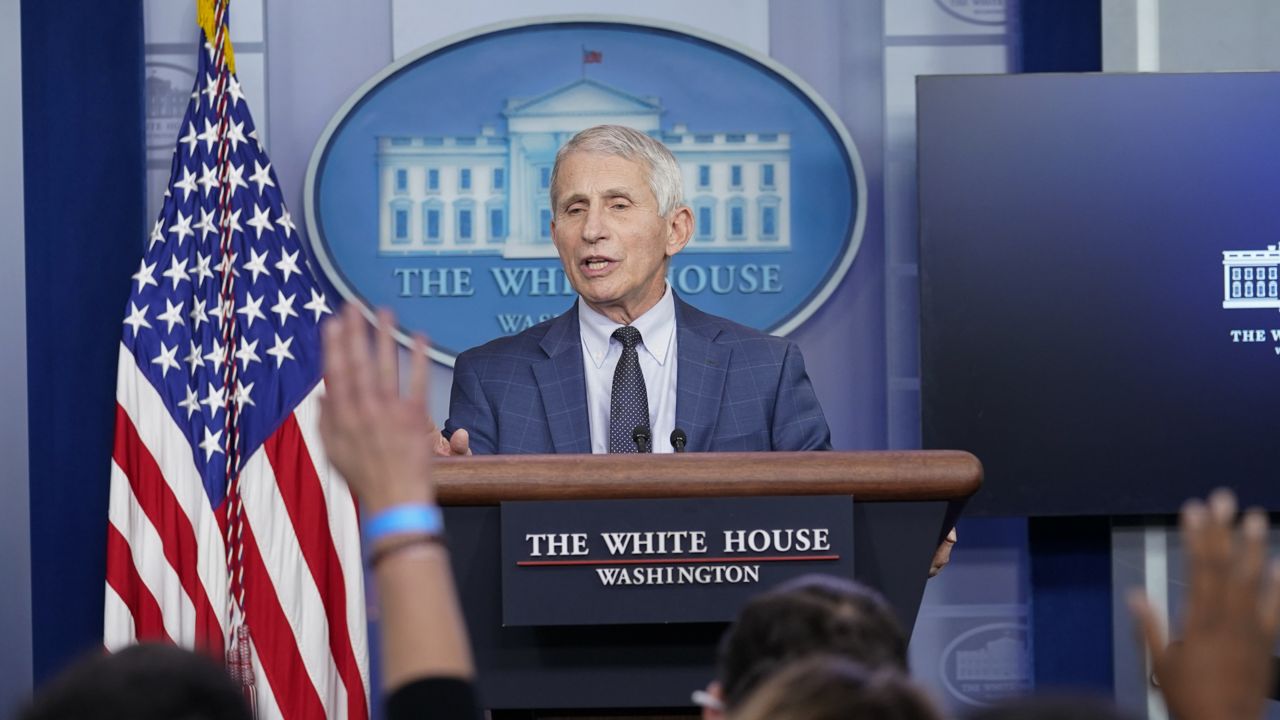The first case of the newly discovered omicron variant of the coronavirus was detected in the United States, health officials said Wednesday.
"The California and San Francisco Departments of Public Health have confirmed that a recent case of COVID-19 among an individual in California was caused by the Omicron variant (B.1.1.529)," the CDC said in a statement. "The individual was a traveler who returned from South Africa on November 22, 2021."
"The individual, who was fully vaccinated and had mild symptoms that are improving, is self-quarantining and has been since testing positive," they added.
Dr. Anthony Fauci, director of the National Institute of Allergy and Infectious Diseases (NIAID) and chief medical advisor to the president, said in a Wednesday briefing that all close contacts had been notified of possible exposure. So far, all contacts have tested negative for COVID-19.
"We knew that it was just a matter of time before the first case of omicron would be detected in the United States," he said.
Fauci said that the individual had not received a booster shot of the COVID-19 vaccine.
The variant has several mutations that may impact its transmisibilty or the severity of the disease it causes, per the World Health Organization, but there is still not enough data to know for sure. Officials will have to wait several weeks before they know if omicron is more transmissible than other variants, whether monoclonal antibody treatments are effective against the new strain and whether COVID-19 vaccines might need to be tailored to the variant.
“We're preparing for the possibility that we may need a variant-specific boost, and that's what the companies are doing,” Dr. Fauci said of the possibility that vaccines might not be effective against the omicron variant. “The administration has been in contact with the pharmaceutical companies to go ahead and take the steps in case we need it.”
Fauci encouraged all eligible Americans to get a booster shot in the meantime while experts await more information, stressing it is simply “too early to say” whether vaccine regimens will need to be tweaked to tackle omicron.
"I think what’s happening now is another example of why it’s important for people to get vaccinated," he said. But also boosting, boosting is very important."
In a statement, White House COVID-19 Response Coordinator Jeff Zients said that the Biden administration is "prepared to meet this challenge with science and speed."
"The President’s medical team continues to believe that existing vaccines will provide some level of protection against severe illness from Omicron, and individuals who have gotten boosters have even stronger protection," Zients continued. "As such, we urge all adults to get their booster shots and to get themselves and their kids vaccinated, if they haven’t already."
Scientists from South Africa first identified the omicron variant in late November, which led wary countries to issue travel advisories tailored particularly towards countries around South Africa, where the variant was first identified.
Scientists recently said the variant was circulating in Europe before it was sequenced in Africa. While there are not yet any reported cases in the United States, the WHO on Monday said the risk of global spread remains “very high.”
But the WHO also warned against travel advisories impacting only a few countries, saying they will likely be ineffective and only serve to punish developing nations.
Dr. Fauci on Wednesday said the U.S. “did struggle” with deciding which countries to put on a travel advisory list, many of which were in Africa and did not present a large threat to spread of the omicron variant.
“We needed to buy some time to be able to prepare, understand what's going on,” Fauci said of the travel advisories, adding the government looks at the advisories as a “temporary measure.”
President Joe Biden is set to unveil his administration's strategy to combat the virus through the winter on Thursday.
"The President will have more to say about our strategy for fighting COVID this winter tomorrow, but for now, we know that: This new variant is cause for continued vigilance, not panic," Zients said. "We know what it takes to limit the spread of COVID: Get vaccinated, get boosted, and take public health measures like masking and distancing."
"We will remain steadfast in our fight against this virus," he added. "And we will continue to be guided by the science and proven public health measures to keep people safe."



